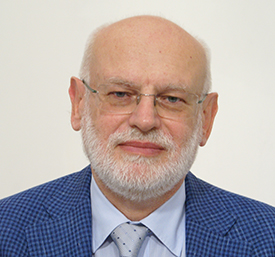The best way forward for the Unitary Patent system after the Brexit vote of 23 June 2016 is to find a way to keep the UK inside the system. That is the opinion of Francesco Macchetta, director IP of the Bracco Group, a healthcare multinational with headquarters in Milan. But if the British don’t stay in, Macchetta thinks Milan would be a logical new location for the London branch of the Central Division of the Unified Patent Court (UPC), he said in an interview with Kluwer IP Law.
How important is the Unitary Patent system for Bracco?
‘I believe that the new patent system for Europe, both the UPC and the Unitary Patent protection for European patents, will benefit all technologically innovative companies. As Bracco Imaging derives a very large proportion of its income worldwide from products which are fruit of its own R&D, I believe it is in a position to benefit most from the new system.’
How has your company been preparing for it?
‘As many others in business, we’ve been following the evolution of the system toward its final implementation and studying the already available implementing regulations.’

What is the best way forward now that, due to the Brexit vote, UK participation in the UP system and the future of the system itself have become uncertain?
‘The best way forward, in my view, is to keep the UK in the Unitary Patent system. Relatively easy ways to achieve this goal have been authoritatively devised. Of course some political hurdles need to be settled in advance, which I hope happens very soon.’
Is the system worthwhile without the UK?
‘Yes, the territory that will be subject to the jurisdiction of UPC will still be relevant in Europe and worth being protected unitarily, in my view.’
Do you see the recent UK High Court ruling, that the government has to have support from parliament to start the article 50 procedure, as a new setback for the future of the UP system?
‘While not having any knowledge or expertise in this matter, I do not believe that it represents necessarily a “setback”. The decision on ratifying the UPCA or not still lies with the UK authorities and I really hope that they will decide to ratify it very soon!’
L’Ordine dei Consulenti in Proprietà Industriale in Italy has asked the government to secure the London part of the Central Division for Milan if the UK leaves the UP system. And in an article published by the Società Italiana Brevetti, it was suggested Italy should not ratify the UPCA in order to reinforce its negotiating position to achieve this. What is your view on this?
‘I would keep the two issues separated. In case the UK does not ratify the UPCA, Italy is the next country satisfying the conditions under Art 89 UPCA and thus it is both legitimate and straightforward that Milan takes over the role of London as the location of a branch of the Central Division.
I am very happy that Italy completed the enactment of the law enabling ratification of the UPCA last month and I expect that the ratification process will be completed without delay. Negotiation power for Italy lies in having ratified the UPCA. Not completing the ratification process does not give any advantages, it would rather create drawbacks.
If the UK ratifies the UPCA, it will enter into force without Italy (upon the expected ratification also by Germany of course), with negative effects for the Italian industry, in my view. If the UK does nót ratify, some negotiations and changes will be necessary – one of them relating to the location of one of the branches of the UPC Central Division. Having ratified the current version of the UPCA will not jeopardise at all Italy’s chances in such negotiations. In my view, indeed, the negotiation power of Italy is reinforced by having completed the ratification process.’
In Italy, the UP system was opposed until 2015 and for quite some time it looked like the country would only join the Unified Patent Court and not the Unitary Patent. How is the general feeling toward the system among big and smaller companies in Italy? What made Italy change its position?
‘Roughly said, I believe that those who opposed the system still do, and those who were in favour still are. Among the latter group there are industry and industry associations, including both bigger and smaller companies, such as notably Confindustria. I believe that the efforts of industry in primis but also the attention in the government and in Parliament for this topic in the end made this possible in a rather short time.’
Recently, the two chambers of the Italian Parliament ratified the UPC Agreement. When do you expect Italy to formally deposit its instrument of ratification with the EU Council?
‘That should happen any time soon.’
Francesco Macchetta is one of the speakers at the Unitary Patent Package Conference, 9 and 10 February 2017 in Amsterdam.
For regular updates on the Unitary Patent and the Unified Patent Court, subscribe to this blog and the free Kluwer IP Law Newsletter.
_____________________________
To make sure you do not miss out on regular updates from the Kluwer Patent Blog, please subscribe here.
Kluwer IP Law
The 2022 Future Ready Lawyer survey showed that 79% of lawyers think that the importance of legal technology will increase for next year. With Kluwer IP Law you can navigate the increasingly global practice of IP law with specialized, local and cross-border information and tools from every preferred location. Are you, as an IP professional, ready for the future?
Learn how Kluwer IP Law can support you.


